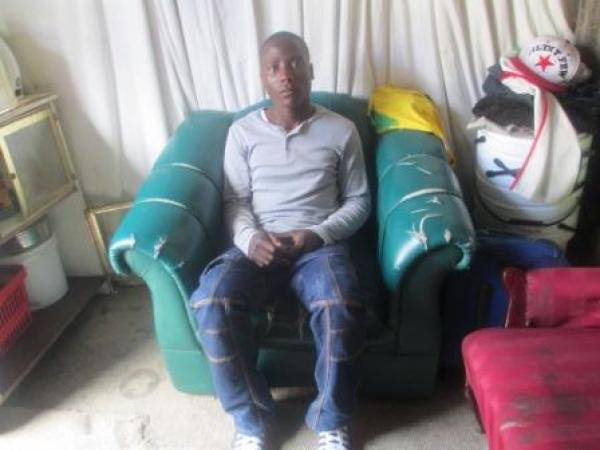Citizenless Brian

What drives a 15-year-old boy to move to a neighbouring country on his own and without his guardian’s consent? Meet Brian Dlodlo, now a 20-year-old man from Zimbabwe who crossed to South Africa through Beitbridge Border Post as an unaccompanied minor in 2007. Brian has no identity papers. He is effectively the citizen of no country.
His mother passed away when he was five years old. He was left in the care of his frail and poor paternal grandmother.
“When I look at my granny,” says Dlodlo, “she also wanted financial support, but her children, including my father, never cared. She was an unhappy old woman and died of high blood pressure in 2008.”
In secondary school, his grandmother told him that no matter how hard she tried she could not cope financially. She sent him to his father to ask for school fees and stationery. He returned empty handed.
Besides failing to support him financially, Dlodlo says his father refused to get him a birth certificate. His grandmother had to beg the school principal to enrol him without a birth certificate when he started grade 1. When he was to write his grade 7 examinations and enrol for secondary school, the principal had to make an exception for him again.
“After long and hard reflection, I realised I did not have a future at all in Zimbabwe. I made up my mind and sold the idea of crossing to South Africa to my friend who was 19 years at that time. He had money because he comes from a better off family than me, but he did not have a contact in South Africa. I have an aunt staying in Johannesburg, and we agreed that he will provide the money and me the contact.”
In early 2007, Dlodlo and the friend began their journey from Zvishavane, a mining town in Midlands Province of Zimbabwe. At the Beitbridge Border Post they were in luck, because the immigration officers and police on the South African side did not question them at all. They reached Johannesburg, where he met his aunt.
Because of his age it was a challenge for his aunt to find a job for Dlodlo. She managed to find a job for Dlodlo’s friend at a golf course.
After everyone had gone to work in the morning, Dlodlo would go and sit in the local park. He says one day a white woman, who often saw him there, approached and interrogated him. He told her his story. The woman took him in and trained him to walk her dogs in the park and treated him like her son. A few months later the woman moved to the Free State with her father. She left him her belongings which he took to his aunt’s place.
He says his challenge now is an identity document. “I have missed lots of opportunities. I meet lots of people willing to help me, but the lack of an ID is my obstacle. Another good Samaritan even sponsored my trip to Zimbabwe last year December for me to go and convince my father to get me identity documents. He is still waiting for me to bring my ID so that he can pay for my studies. My father again refused to get me an ID.”
Dlodlo is currently not working because of his ID situation.
This story has been fact-checked by GroundUp.
Support independent journalism
Donate using Payfast

Don't miss out on the latest news
We respect your privacy, and promise we won't spam you.
Next: UWC students celebrate gay rights
Previous: Empowerment through art

This article is licensed under a Creative Commons Attribution-NoDerivatives 4.0 International License.
